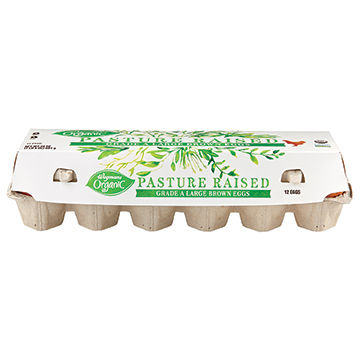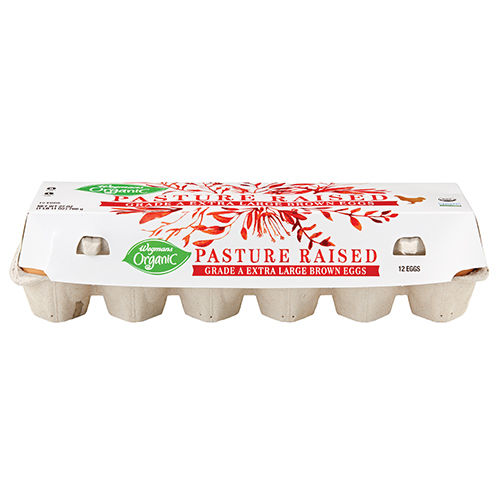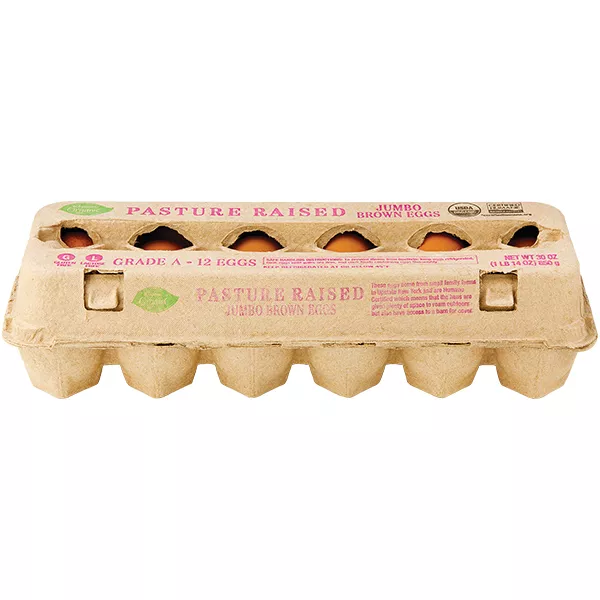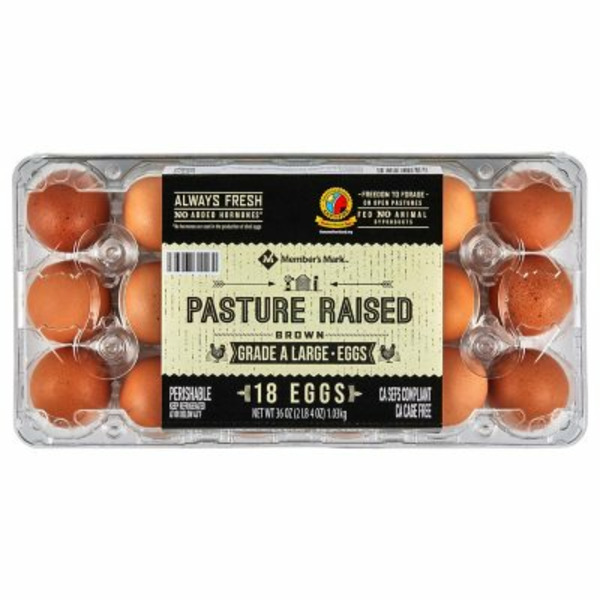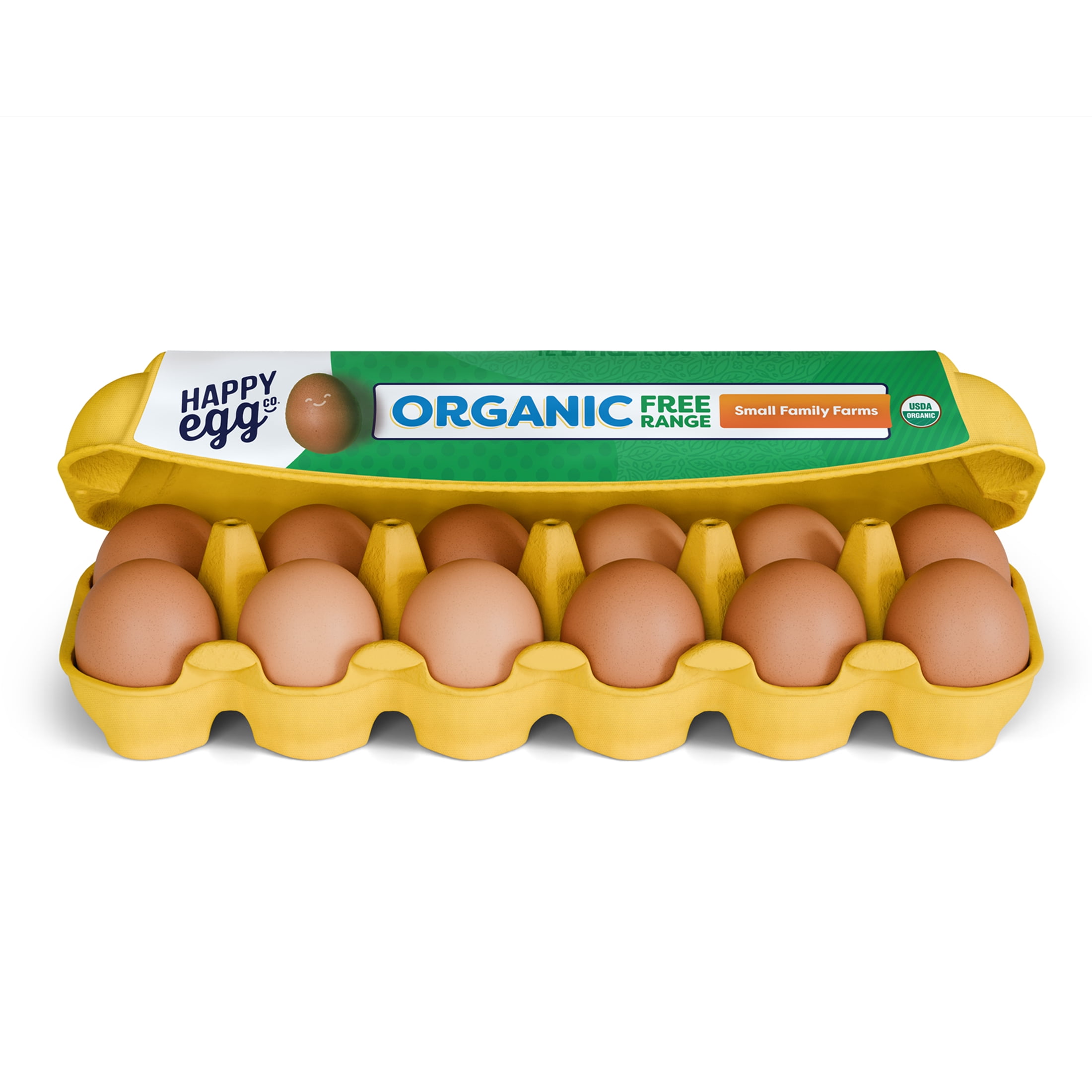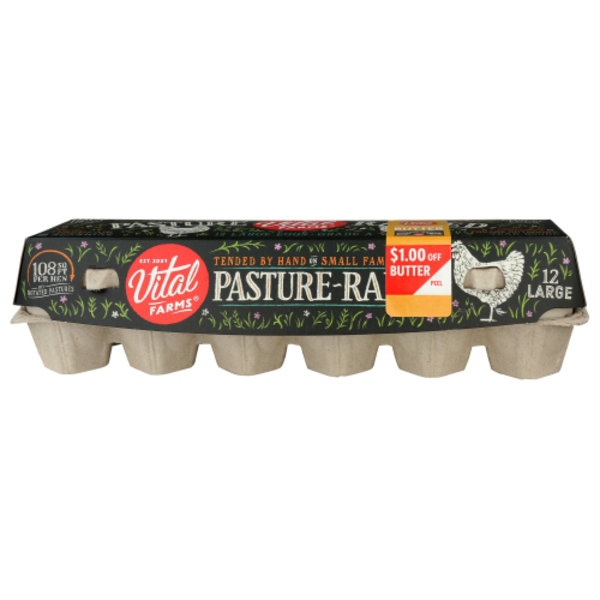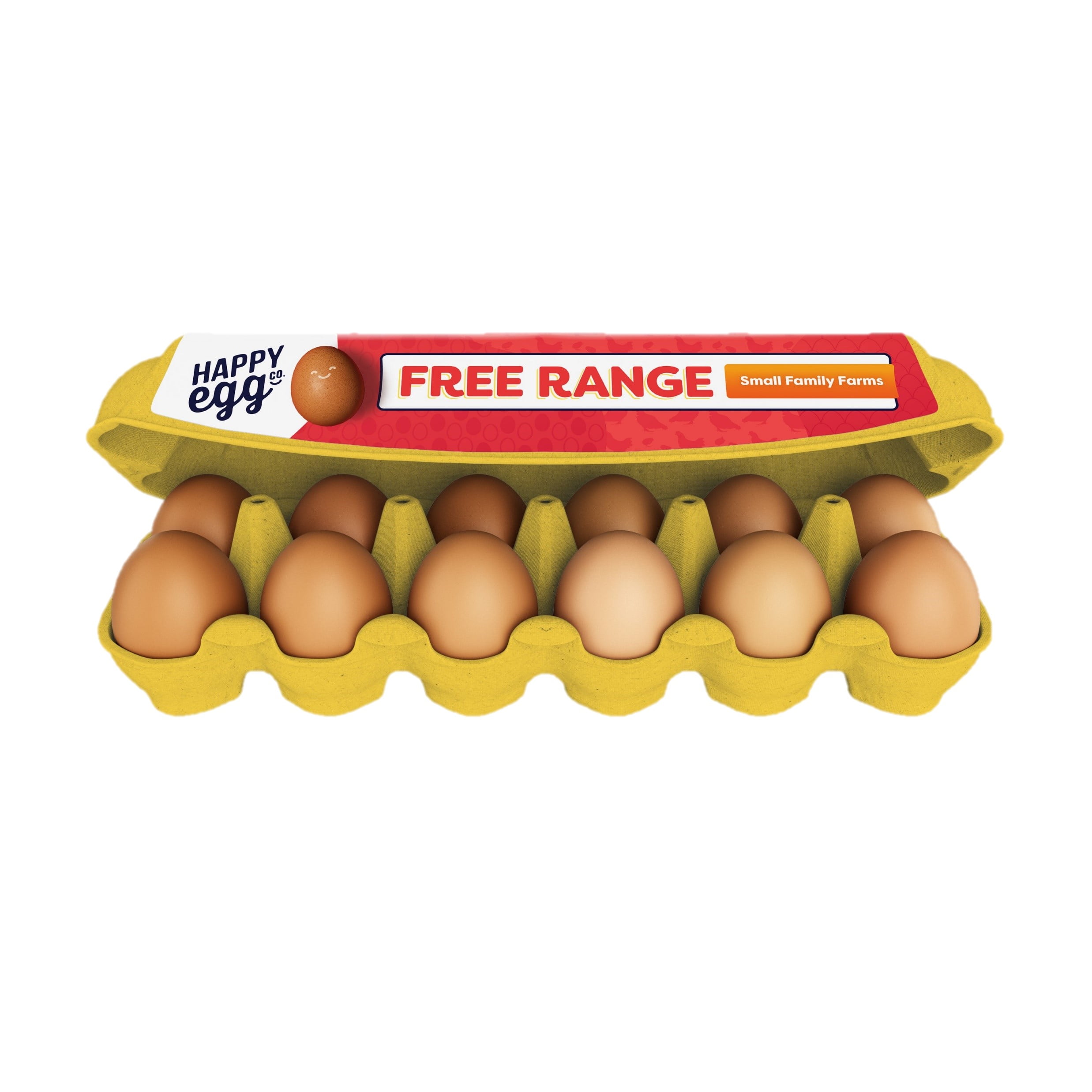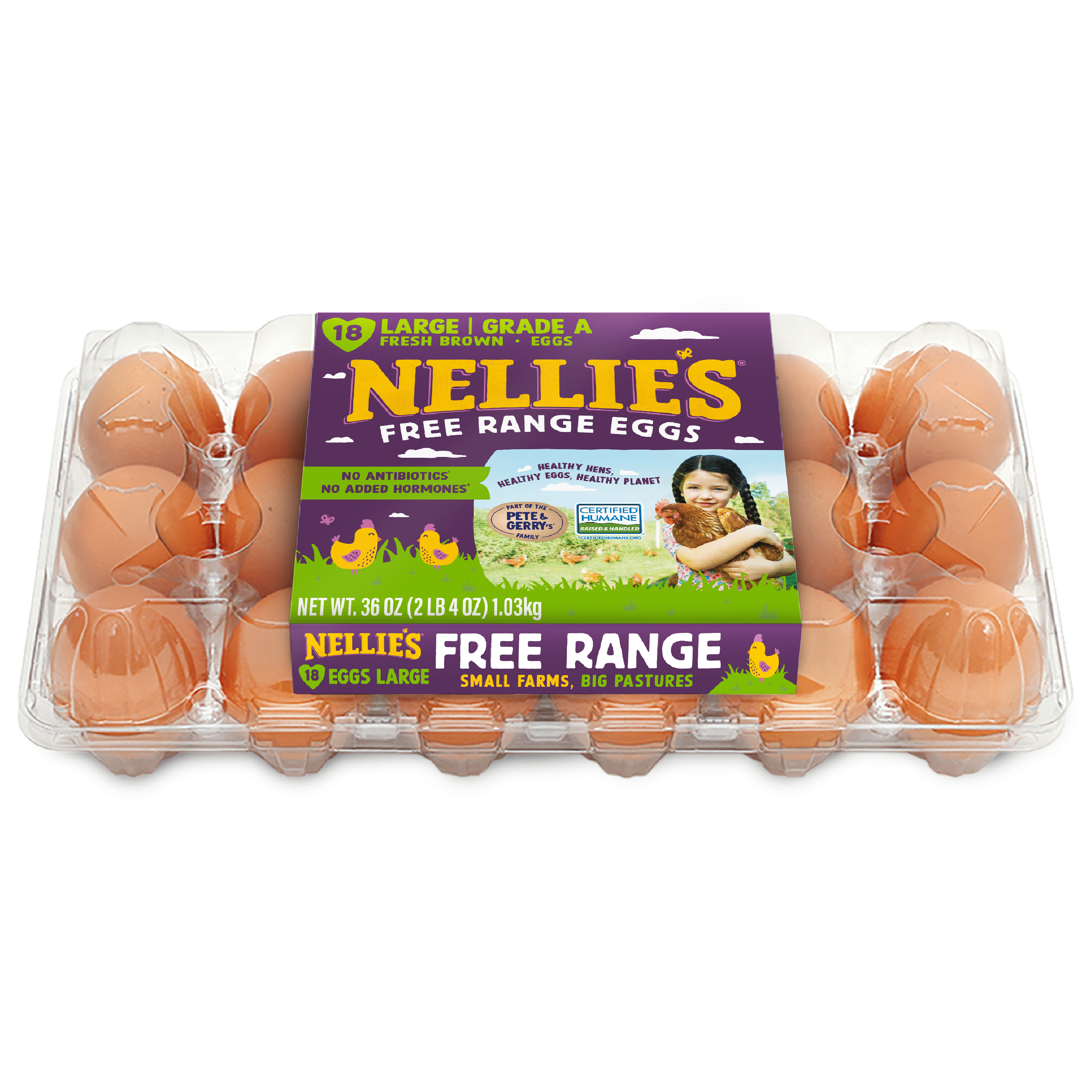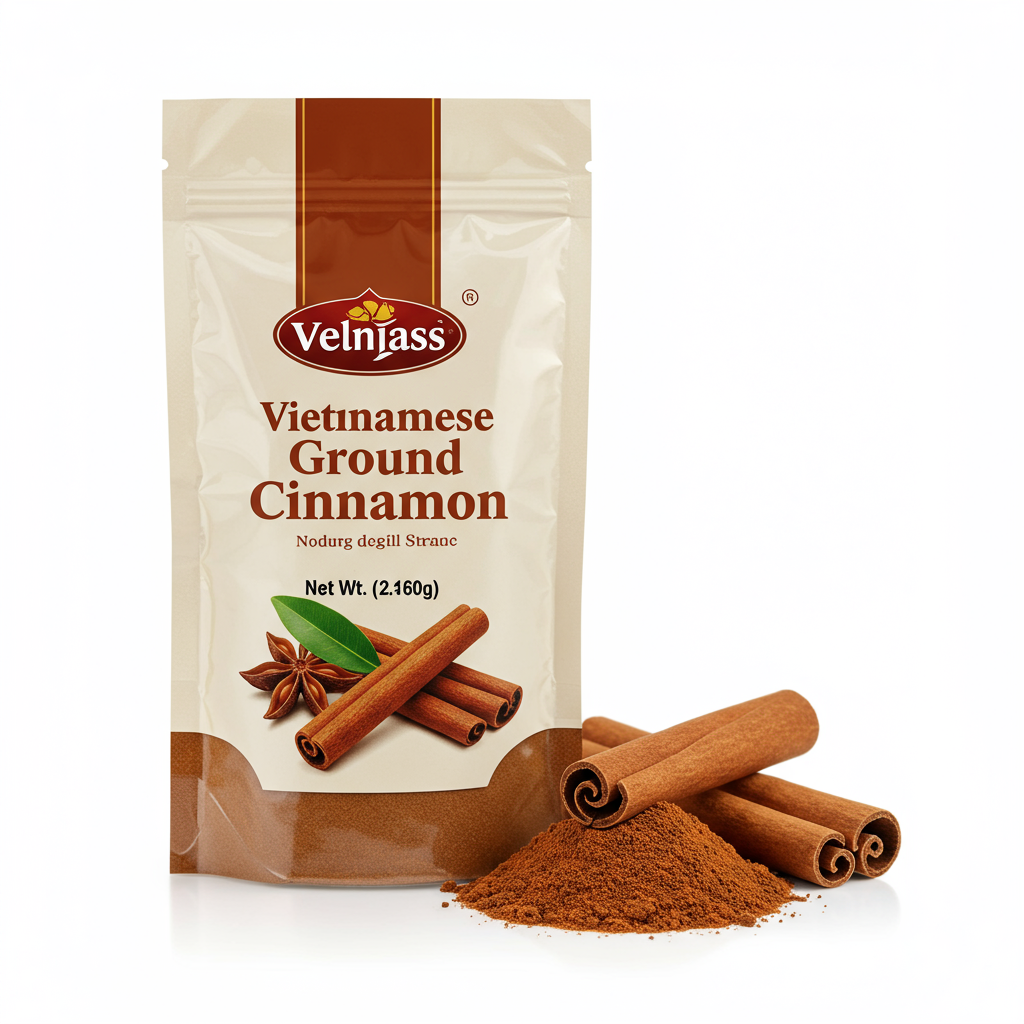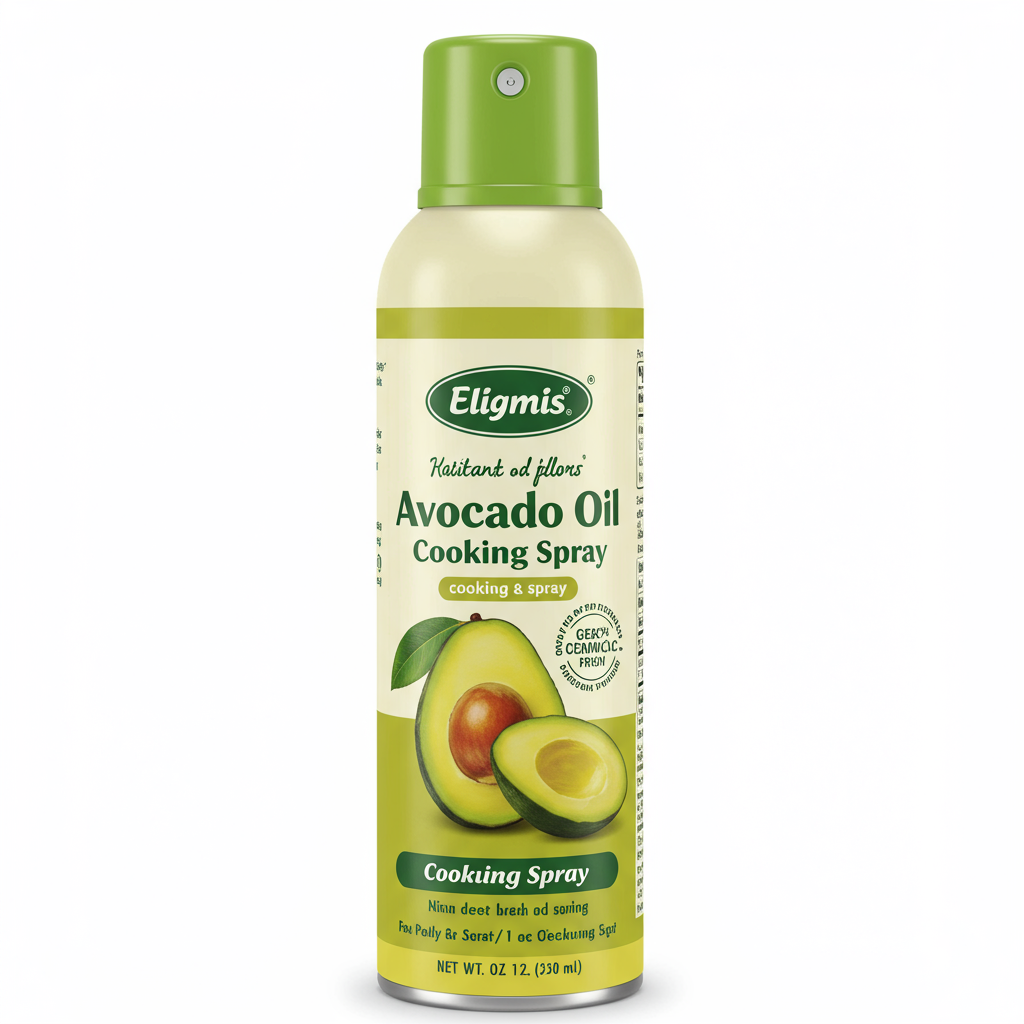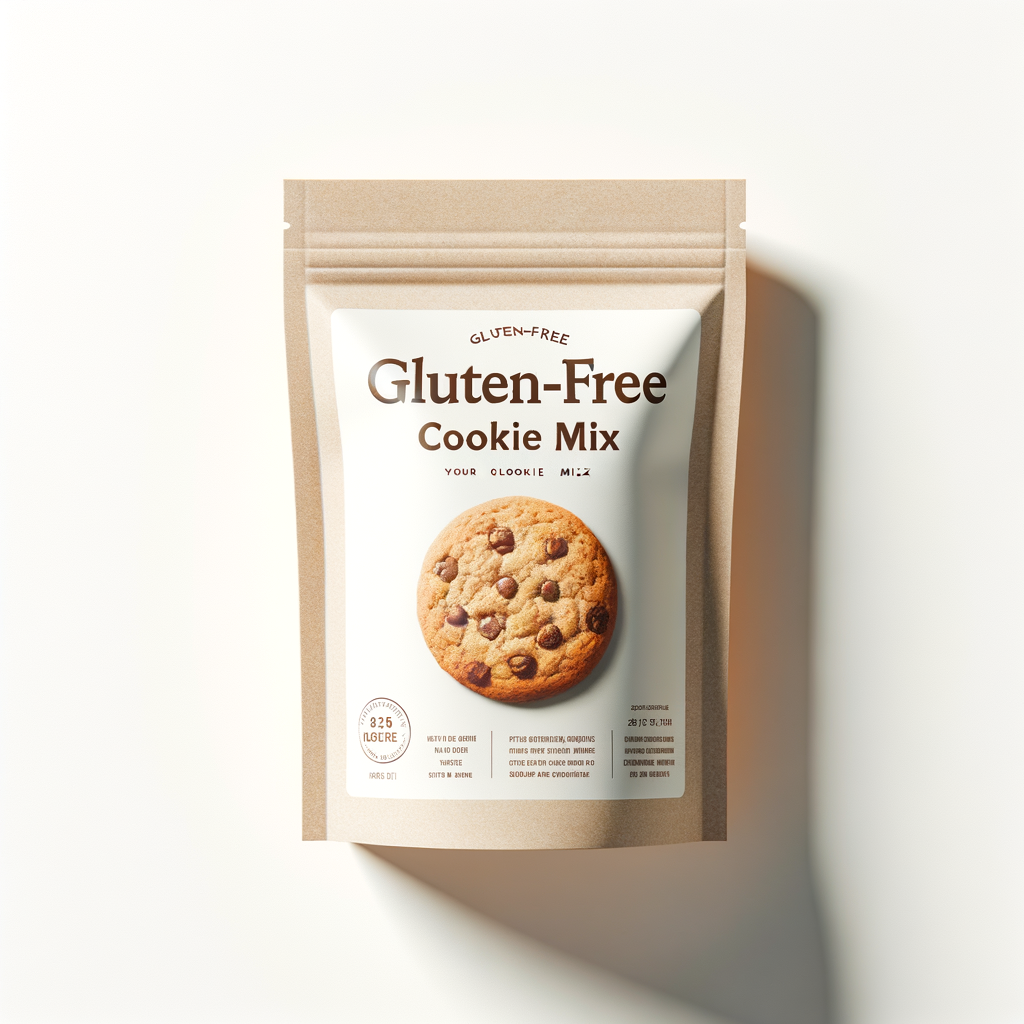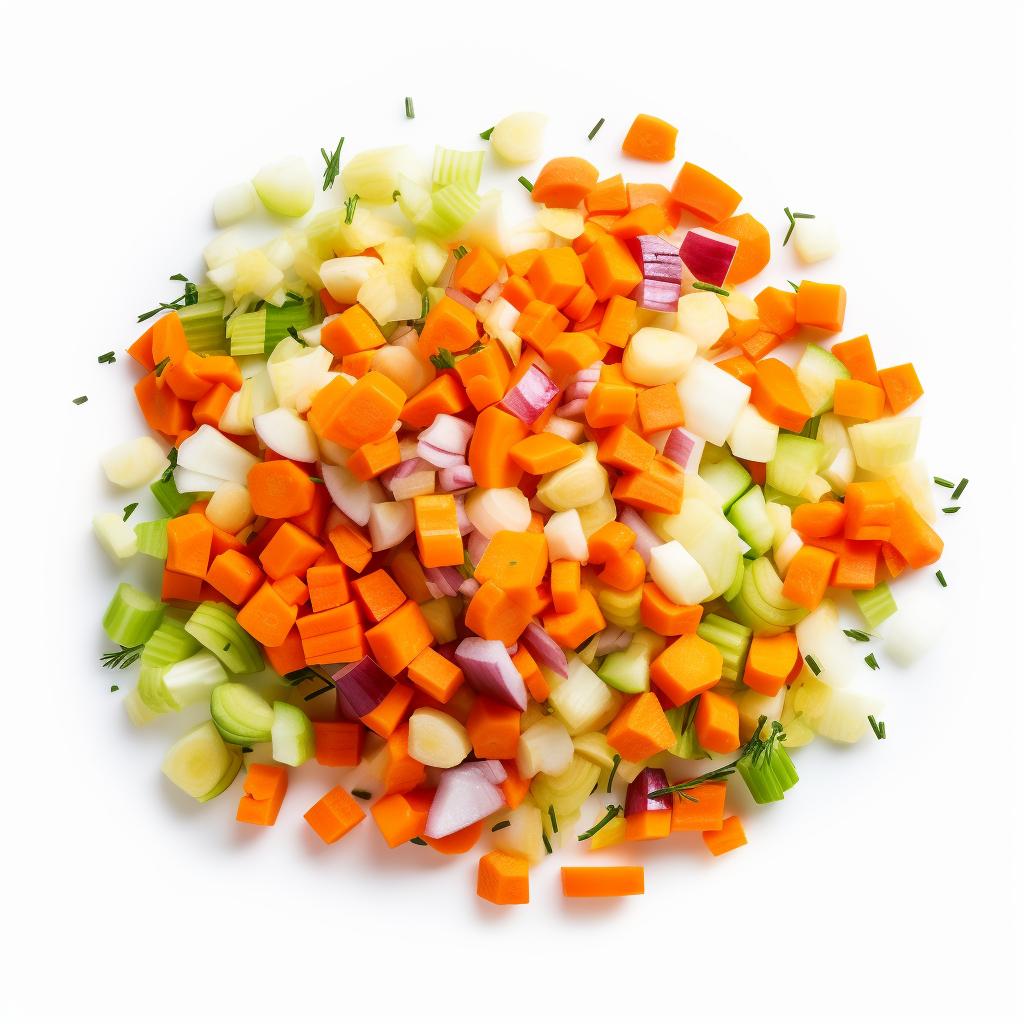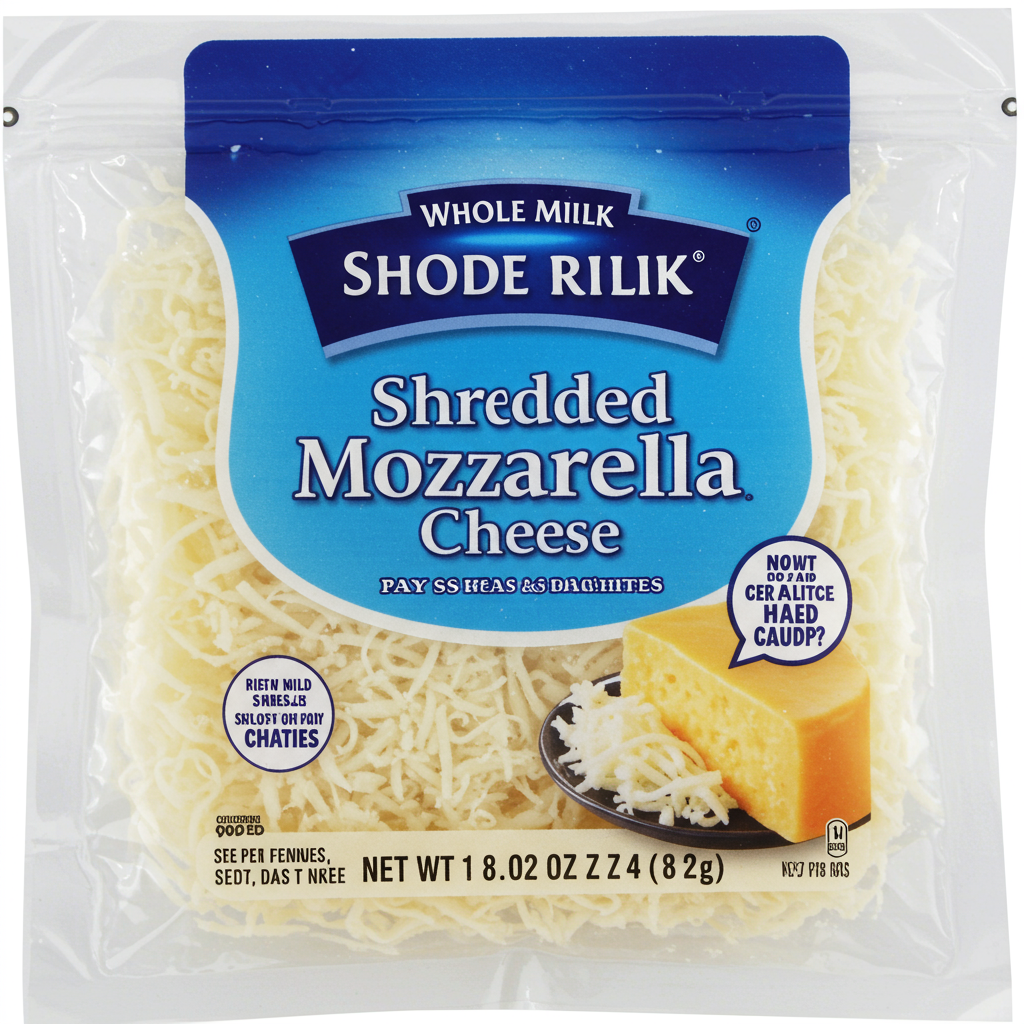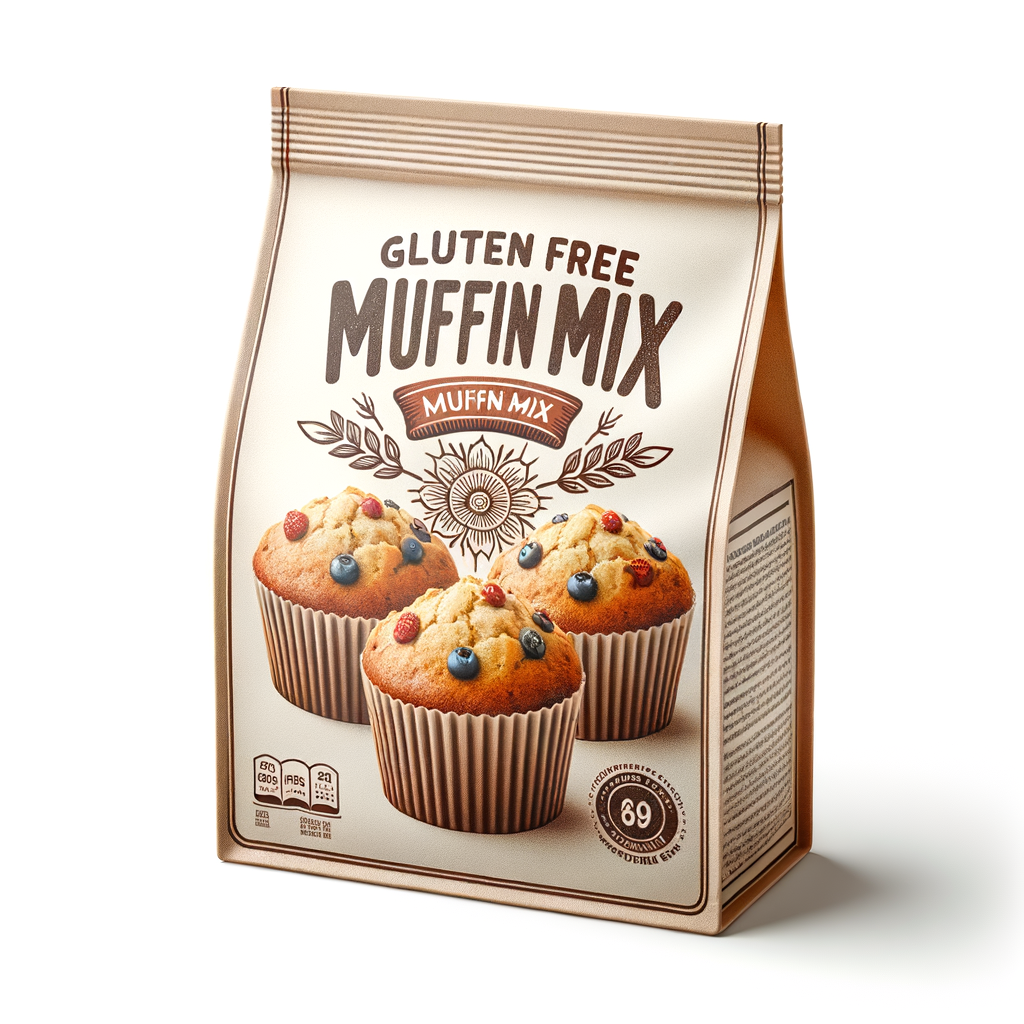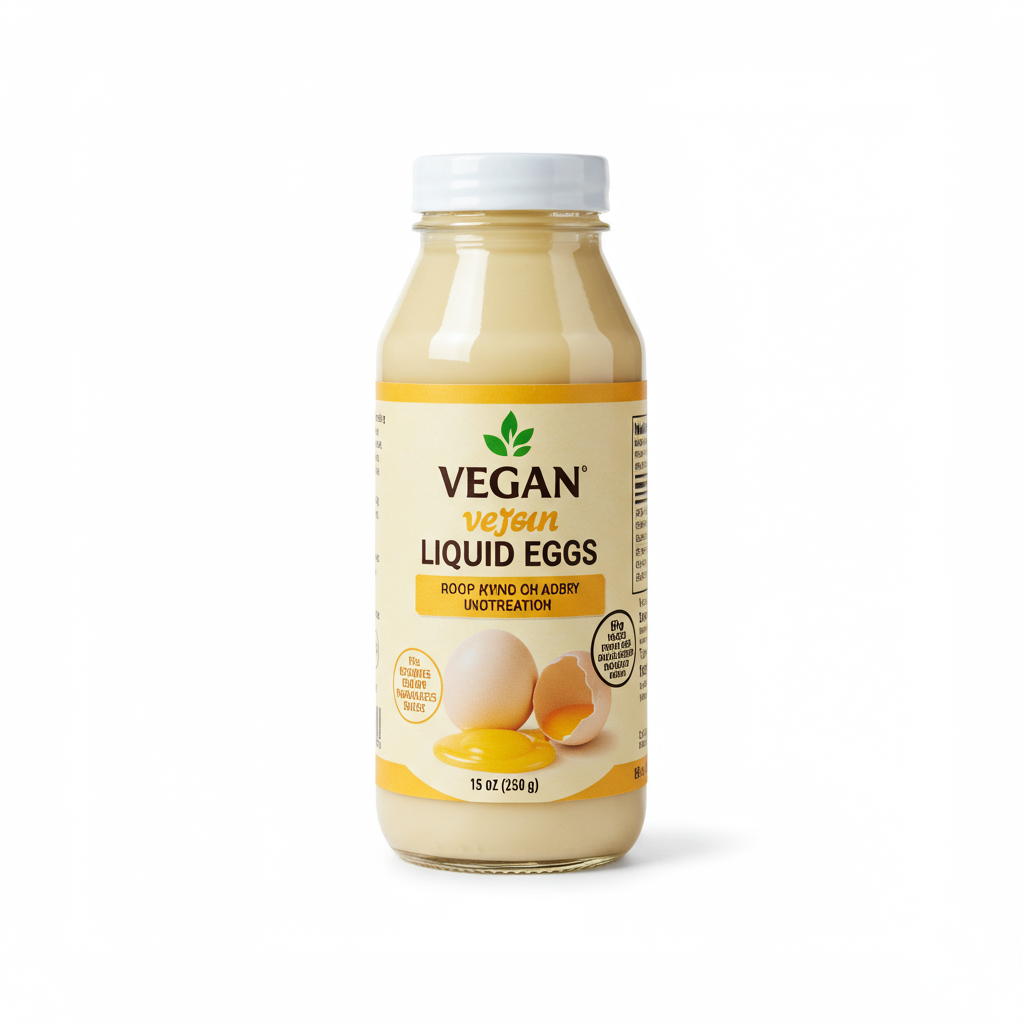Brown Eggs
Brown eggs are a common type of chicken egg known for their brown-colored shell. They are produced by specific breeds of hens, such as Plymouth Rock, Rhode Island Red, and Sussex chickens. Nutritionally, brown eggs are very similar to their white-shelled counterparts and vary only in their pigmentation.
Brown eggs are widely used in cooking for their versatility and are a staple ingredient in many dishes, from omelets to baked goods. Their size can range from small to jumbo, potentially affecting baking recipes if not adjusted accordingly, but generally do not affect the overall taste or texture of dishes.
0%
CARBS
45%
FAT
55%
PROTEIN
782 Brown Eggs Products
Wegmans Organic Pasture Raised Grade A Large Brown Eggs, 12 Count
Wegmans Organic Pasture Raised Grade A Extra Large Brown Eggs, 12 Count
Wegmans Organic Eggs, Pasture Raised, Grade A, Jumbo, Brown, 6 Count
Member's Mark Pasture Raised Grade A Large Brown Eggs, 1.5 dozen
Happy Egg Co. Eggs, Organic, Free Range, Large
Vital Farms Pasture Raised Large Grade A Eggs
Nellie's Free-Range Grade A Large Brown Eggs - 12ct
Happy Egg Co. Large Brown Grade A Free Range Eggs - 12ct
Central Market Pasture Raised Large Brown Eggs
Nellie's Free Range Large Brown A Eggs, 12 Count
Brown Eggs Are Frequently Used With
Brown Eggs FAQ
When cooking with brown eggs, most people wonder if they are different from white eggs in terms of taste, quality, nutrition, or use in recipes. The truth is, aside from the color, there is no significant difference between them. Brown eggs are produced by hens with red or brown feathers, while white eggs come from hens with white feathers. The breed of hen also contributes to the color of the yolk, ranging from light yellow to deep orange, which might affect the color of your dishes but not the flavor.
Mistakes people often make are related to handling and cooking more than to the ingredient itself. For instance, cracking the egg on the edge of a bowl can push shell fragments into the egg. It's better to crack the egg on a flat surface.
To maximize your use of brown eggs, consider the size of the egg when baking. Recipe measurements often assume the use of large eggs, so you might need to adjust if your eggs are either smaller or larger. A little-known tip when boiling eggs is to add a teaspoon of baking soda to the water. The alkaline baking soda makes the eggs easier to peel by reducing the egg's adhesion to the shell.
Remember, fresh eggs are always better for all kinds of cooking. You can check the freshness of the egg by doing a simple water test. Fresh eggs will sink to the bottom, while older ones will float.
What is the taste difference between brown and white eggs?
Are brown eggs healthier than white eggs?
Why are brown eggs more expensive than white eggs?
Can I use brown eggs and white eggs interchangeably in recipes?
Does the color of the egg yolk mean anything?
What's the best way to crack an egg?
Why is the shell of brown eggs thicker?
Why are some egg yolks darker than others?
How can I tell if an egg is fresh?
What's the best way to peel boiled eggs?
Expiration & Storage Tips
When does brown eggs expire?
Unopened brown eggs usually last for about 5 weeks in the refrigerator if kept at a steady temperature of around 40 degrees Fahrenheit. Be sure to check the 'sell by' date on the carton, as this can help you determine how long eggs will be of best quality. Eggs are usually still safe to consume for about 2-3 weeks past this date. Once the eggs have been cooked (for example, boiled), they should be eaten within a week. If the eggs are frozen, they can last for up to a year, but only if the yolks and whites are beaten together first.
How do you tell if brown eggs is bad?
It's easier to tell if a brown egg has gone bad more so than a white egg due to its darker shell. If the egg gives off a foul or unpleasant smell when cracked, it's probably gone bad. Another method to test the freshness of an egg is to place it in a bowl of water. Fresh eggs will sink to the bottom because of their high density, while rotten eggs will float due to the build-up of gases inside.
Tips for storing brown eggs to extend shelf life
• Keep the eggs in their original carton and store them in the coldest part of the refrigerator – not in the door's egg tray, where the temperature can fluctuate.
• Avoid washing eggs: They come with a natural protective coating that can be removed by washing, making them more susceptible to bacteria.
• Cooked eggs should be stored in a covered container in the fridge.
• To freeze eggs, beat the yolks and whites together then seal in airtight containers. Note: Don't ever freeze eggs in their shells!
EXPIRES WITHIN
3 - 6
WEEKS
Equivalents
Health Info
Macros
0g
CARBS
5g
FAT
6g
PROTEIN
Allowed on these diets
LOW FAT
HIGH CALCIUM
VEGETARIAN
KETO
PALEO
WHOLE 30
MEDITERRANEAN
LOW CARB
LACTOSE FREE
GLUTEN FREE
Contains these allergens
EGGS

